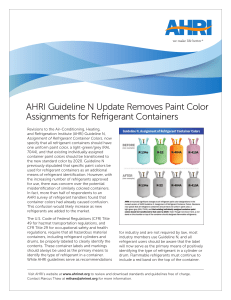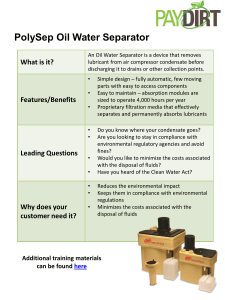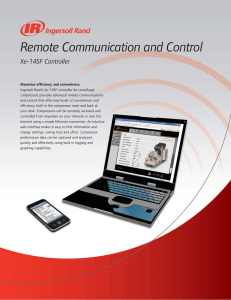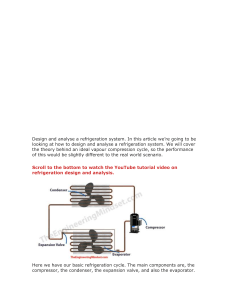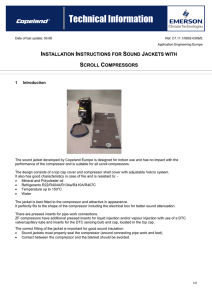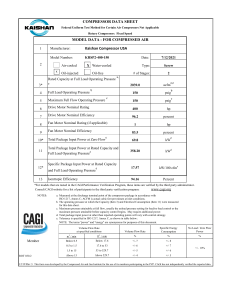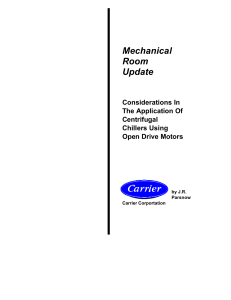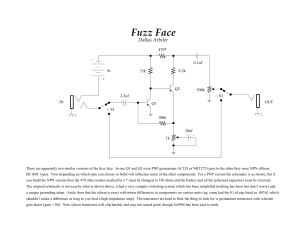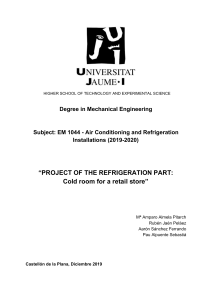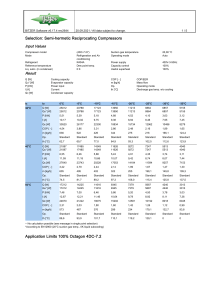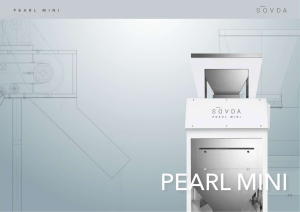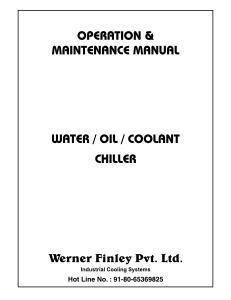R407F (Performax LT) Installation
Anuncio
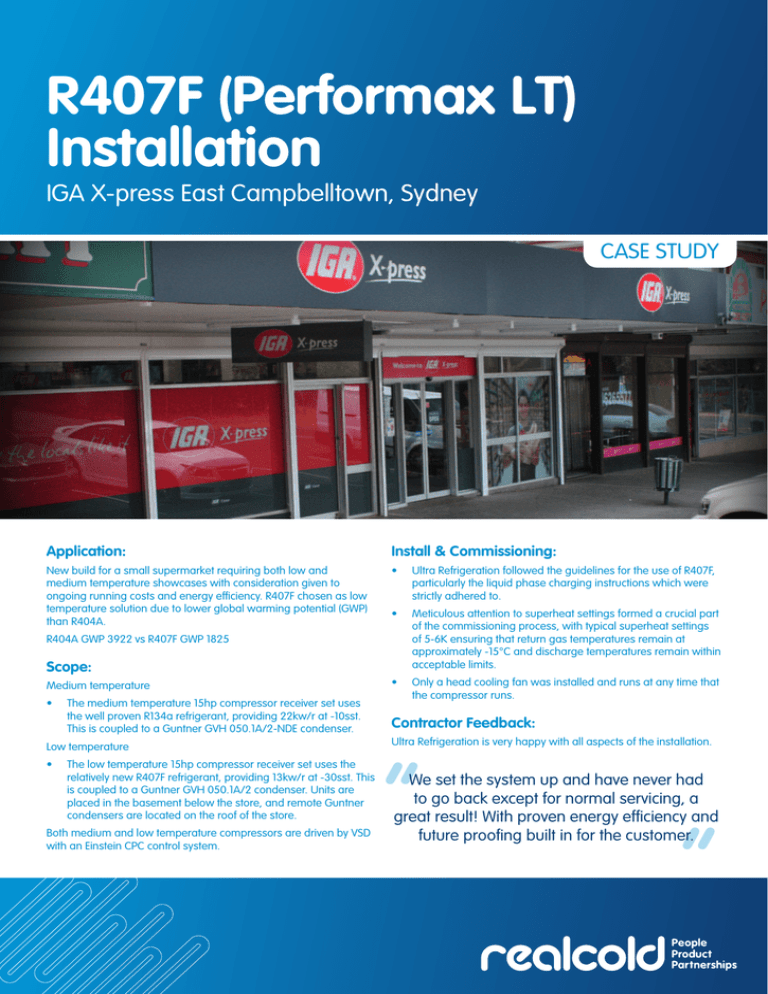
R407F (Performax LT) Installation IGA X-press East Campbelltown, Sydney CASE STUDY Application: Install & Commissioning: New build for a small supermarket requiring both low and medium temperature showcases with consideration given to ongoing running costs and energy efficiency. R407F chosen as low temperature solution due to lower global warming potential (GWP) than R404A. • ltra Refrigeration followed the guidelines for the use of R407F, U particularly the liquid phase charging instructions which were strictly adhered to. • eticulous attention to superheat settings formed a crucial part M of the commissioning process, with typical superheat settings of 5-6K ensuring that return gas temperatures remain at approximately -15°C and discharge temperatures remain within acceptable limits. • nly a head cooling fan was installed and runs at any time that O the compressor runs. R404A GWP 3922 vs R407F GWP 1825 Scope: Medium temperature • T he medium temperature 15hp compressor receiver set uses the well proven R134a refrigerant, providing 22kw/r at -10sst. This is coupled to a Guntner GVH 050.1A/2-NDE condenser. Low temperature • T he low temperature 15hp compressor receiver set uses the relatively new R407F refrigerant, providing 13kw/r at -30sst. This is coupled to a Guntner GVH 050.1A/2 condenser. Units are placed in the basement below the store, and remote Guntner condensers are located on the roof of the store. Both medium and low temperature compressors are driven by VSD with an Einstein CPC control system. Contractor Feedback: Ultra Refrigeration is very happy with all aspects of the installation. “ We set the system up and have never had to go back except for normal servicing, a great result! With proven energy efficiency and future proofing built in for the customer. “ Refrigerant R407F Main physic-chemical properties: • • • • • • • Boiling point at 1.013 bar = -46.06°C Temperature glide at 1.013 bar = 6.4° K Critical temperature +82.66°C Flammability in air, non-flammable NF-EN378 classification L1(A1/A1) Potential for action on ozone (R-11=1):0 GWP(CO2=1): 1825 R22 R407A R404A R422D R407F Capacity kJ/m3 1005 949 984 778 1020 OOP 0.05 0 0 0 0 GWP 1810 2107 3922 2729 1825 Retrofitting R407F R407F is not a drop-in refrigerant. It can be successfully used as a retrofit refrigerant, however the following system modifications must be undertaken: TO REPLACE R22: TO REPLACE R404A/R507 1. Record existing system performance data. 1. Record existing system performance data. 2. Run each circuit through a defrost to optimise oil return. 2. Recover R404A/R507 to storage cylinder, record quantity. 3. Recover R22 to storage cylinder, record quantity. 3. Choose appropriate lubricant for compressor application. 4. Choose appropriate lubricant for compressor application. 4. D rain existing lubricants from compressors, separators & oil reservoirs – record quantity removed. 5. Drain existing lubricants from compressors, separators & oil reservoirs – record quantity removed. 6. Change any oil filters if present. 7.Recharge system with synthetic oil, match quantity to what was removed. 5. Change any oil filters if present. 6.Recharge compressor with polyol ester oil, match quantity to what was removed. 7. Replace all filter driers & suction filters. 8.Recharge R22 into system, run for 24 hours to recover as much residual mineral oil as possible (maximum 5% residual oil). 8. Evacuate the system. 9. Replace all elastomeric seals, filter driers & suction filters. 10. Liquid charge with R407F. 10. Leak test system. 9. Leak test system. 11. Check expansion valve – generally no change required. 11. Recover R22 & evacuate system. 12. Liquid charge with R407F. 12. C heck system operation. Expect slightly higher discharge pressure & temperature. 13. Check expansion valve – generally no change required. 13. Label system with details of refrigerant & lubricant used. 14. C heck system operation. Expect generally higher discharge pressure & temperature. 14.Monitor system with particular attention to lubrication cleanliness. 15. O ptimise refrigerant charge – should not exceed 95% of charge removed. 16. Label system with details of refrigerant & lubricant used. 17.Monitor system with particular attention to lubrication cleanliness. www.realcold.com Australia: 1800 REALCOLD (7325 2653) New Zealand: 0800 11 66 90
